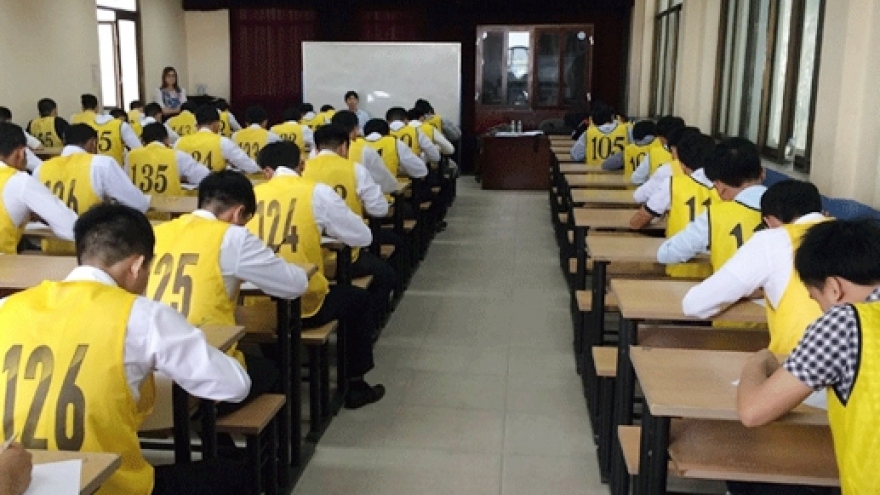Taiwan leads in hiring Vietnamese guest workers
VOV.VN - More than 98,000 Vietnam guest workers went abroad during the first ten months of 2016, up 16.98% against last year’s same period and nearly reaching 100% of the entire calendar year 2016 target.
 |
The reopening of the Republic of Korea (ROK) market was a major boon to helping Vietnam fulfil its target for the year, said Deputy Minister Diep of the Ministry of Labour, Invalids and Social Affairs.
Ministry figures showed that for just the month of October – 10,361 workers were working abroad broken down as follows: Taiwan (6,110), Japan (3,193), ROK (641), Malaysia (18), Saudi Arabia (267), Macau (27) and Algeria (105).
The total number of workers was comprised of 3,679 female and 2,431 male workers.
Mr Diep explained that though Taiwan leads in terms of sheer number of workers, those numbers have tapered off in the 10 months January-October despite the Ministry having implemented several measures aimed at buttressing them.
He said a contributing factor in the decline is that most Vietnamese workers say they prefer working conditions in other markets such as the ROK, over employment in Taiwan.
On average, he said, over the past few years Vietnam has sent more than 70,000 employees to Taiwan, more than twofold the number sent to Japan, which ranges from 30,000-35,000 annually.
At present, choosing appropriate candidates for the Japanese market is facing difficulties, said Mr Dien, expressing hope that obstacles will be overcome and conditions more favourable soon.
Obstacles in new markets
Mr Diep said Taiwan, Japan and the ROK barring any monumental unforeseen change in circumstances will most likely remain the three key markets throughout the remainder of the year.
In Japan, workers are primarily engaged in the medical fields as nurse practitioners, orderlies, medical assistants, cleaning staff and domestic workers. Currently, the Japan government is in the process of modifying the laws to allow Vietnamese workers to extend their stay in the country for up to five years.
Thailand began receiving Vietnamese workers in the offshore fishing and construction trades as of May, 2016. However, the market is not lucrative enough for workers because it offers a much lower salary than other markets such as Malaysia, Saudi Arabia, Taiwan, Japan and the ROK.
In addition, working on Thai fishing vessels is very strenuous and physically demanding when compared to the work in other trades on offer from the majority of other foreign countries.
Although the Vietnam government has signed labour agreements with Australia and New Zealand, only a limited handful of guest workers have had the opportunity to work in these markets because of highly restrictive quotas.
The Ministry had negotiated with the Israeli Ambassador on quotas to send workers to the Middle Eastern country to work in construction and agriculture but, negotiations collapsed due to Israeli concerns regarding the reliability of Vietnamese workers.
Mr Diep noted there are many markets that pay high salaries in need of guest workers, but prior experience with too many Vietnamese workers illegally staying after their work permits expired has and continues to create needless problems.
This problem must be satisfactorily dealt with if Vietnam is to have any realistic hope of stimulating labour exports in the coming time, Mr Diep concluded.




